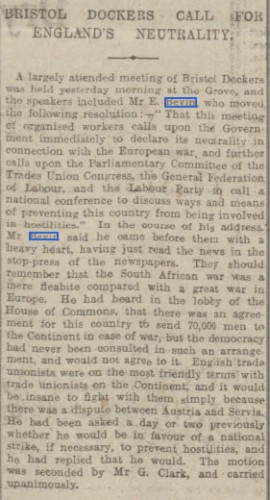In the First World War, hundreds of people in Bristol registered as conscientious objectors (COs). These were people who for religious, moral or political reasons refused to fight in the war against Germany. Some agreed to serve in non-combatant roles (eg ambulance staff); others were sent to prison. These were the brave, principled people who were recently described as ‘cranks’ by Jeremy Paxman.
Always keen to ensure a steady supply of people for the war-machine, the government ensured that COs were treated very badly. After the war many of them found it difficult to get their jobs back or to find a job of any kind. Faced with the devastation and destruction caused by the war, the authorities were acutely embarrassed by those who had refused to take part.
Remembering The Real World War 1 want to gather together as much information as possible about local COs. We plan to work with family history groups and others to discover the backgrounds of these people and their experiences during and after the war. The first step to is to make a list of the names and addresses of as many COs as possible. These are available in court records and newspaper reports. Most can be found online or in the city records office.
We need volunteers to help trawl through these records and reports. If you’re interested (or know anyone else who may be) please get in touch. We’ll organise a meeting of those interested and then get started.
And of course, if anyone in your family (or the family of anyone you know) was a CO we would like to hear from you.
Email us at rememberingrealww1@gmail.com or use the CONTACT US page on the website.
